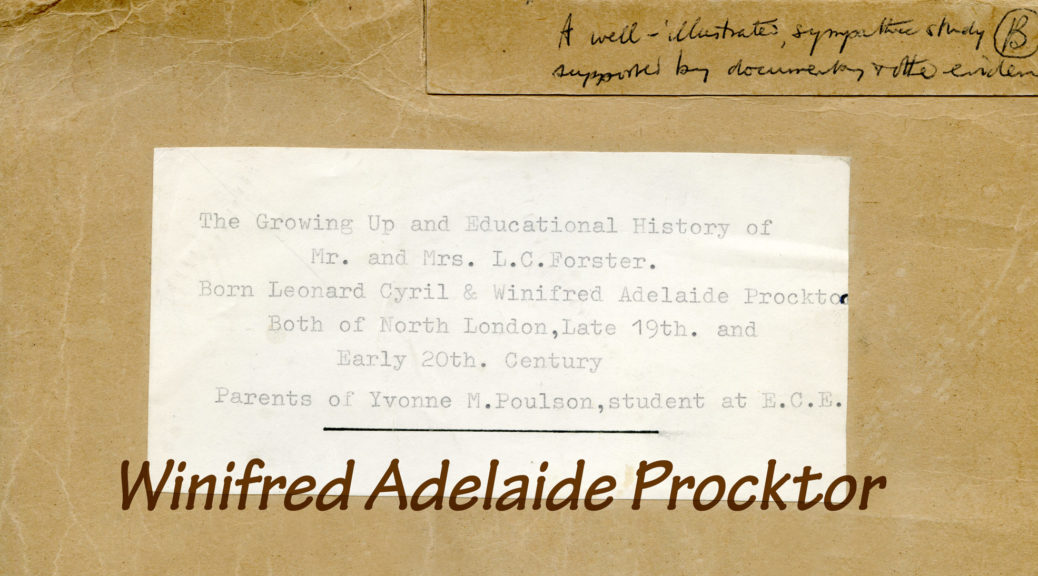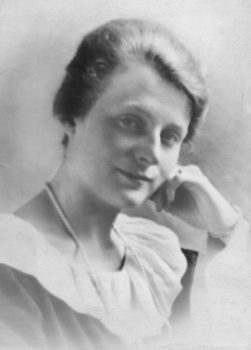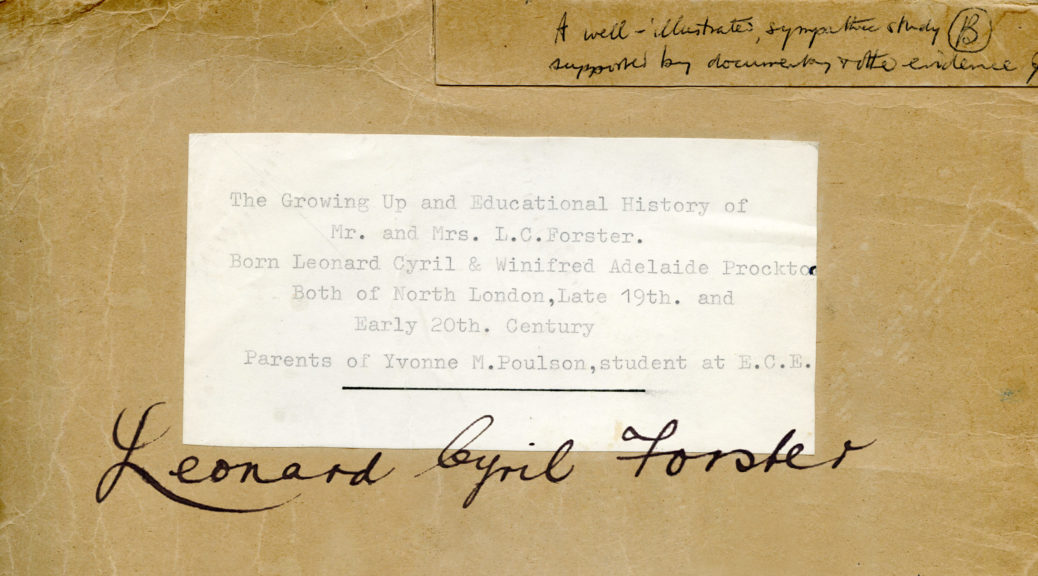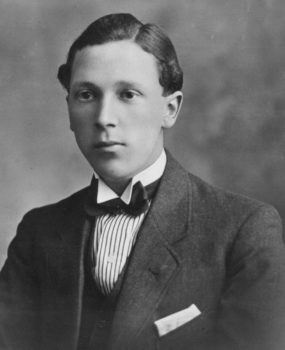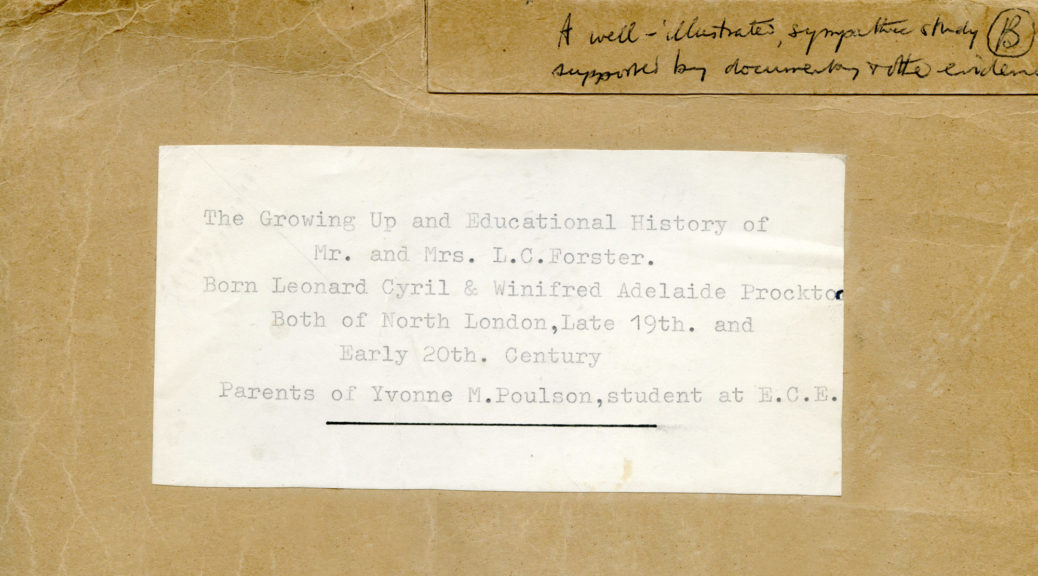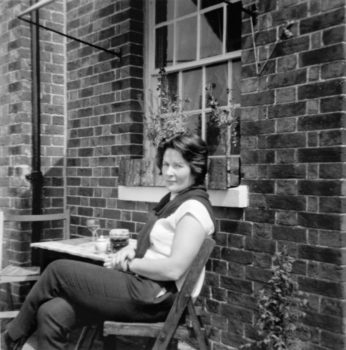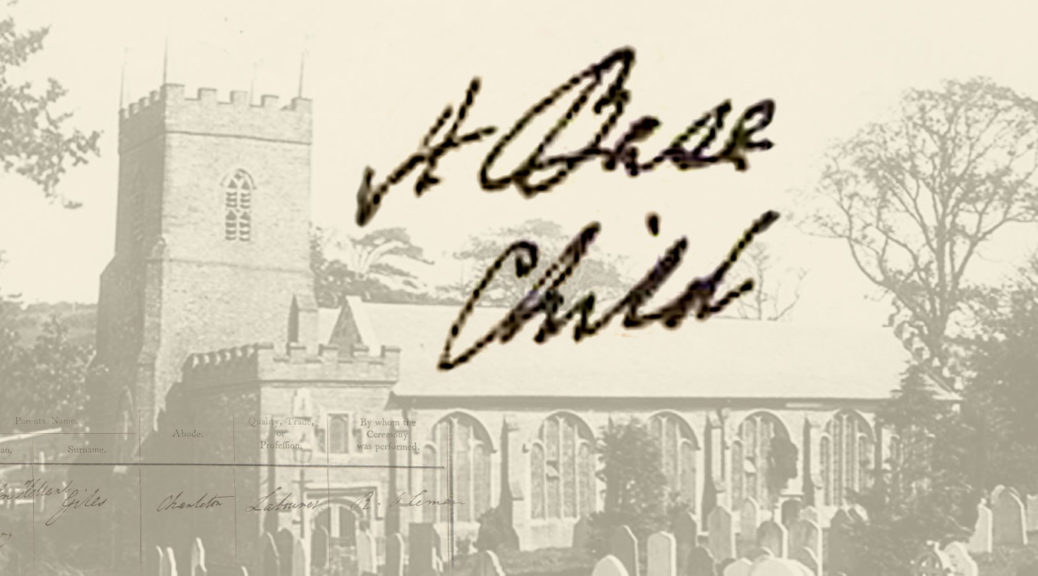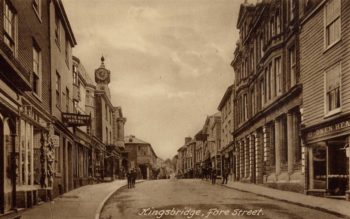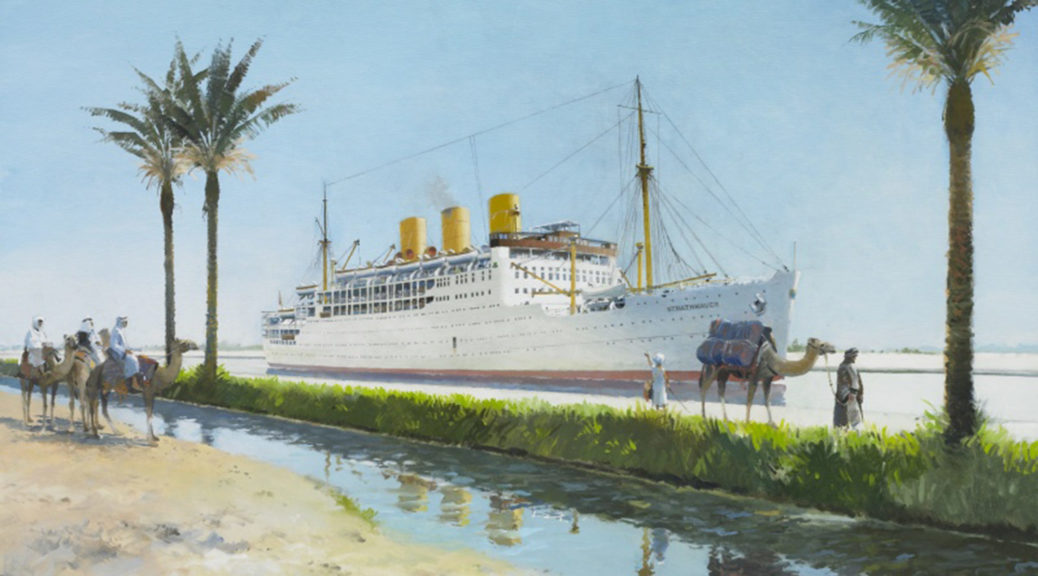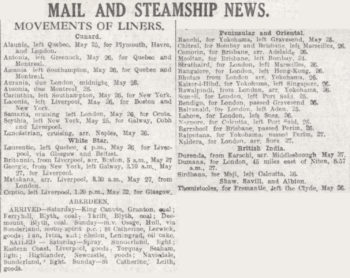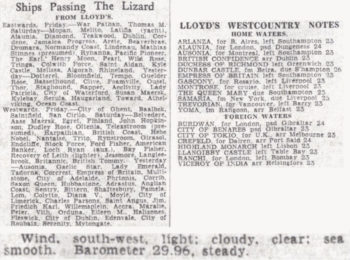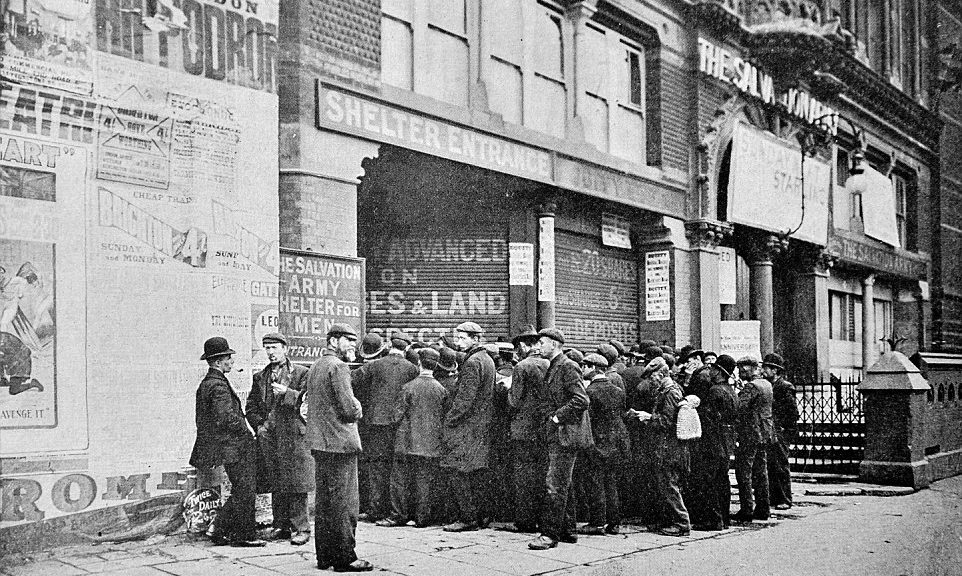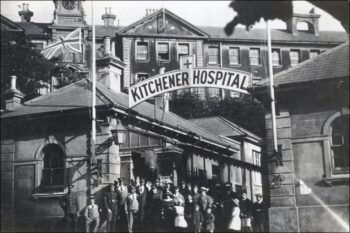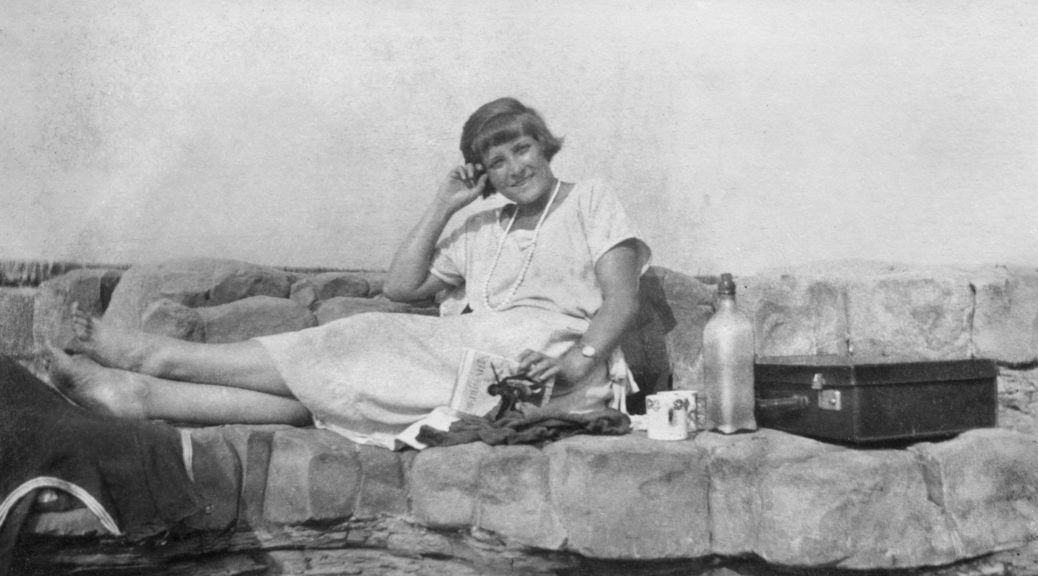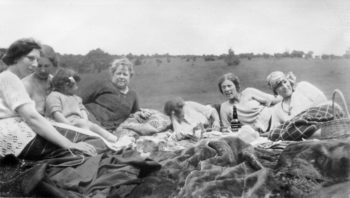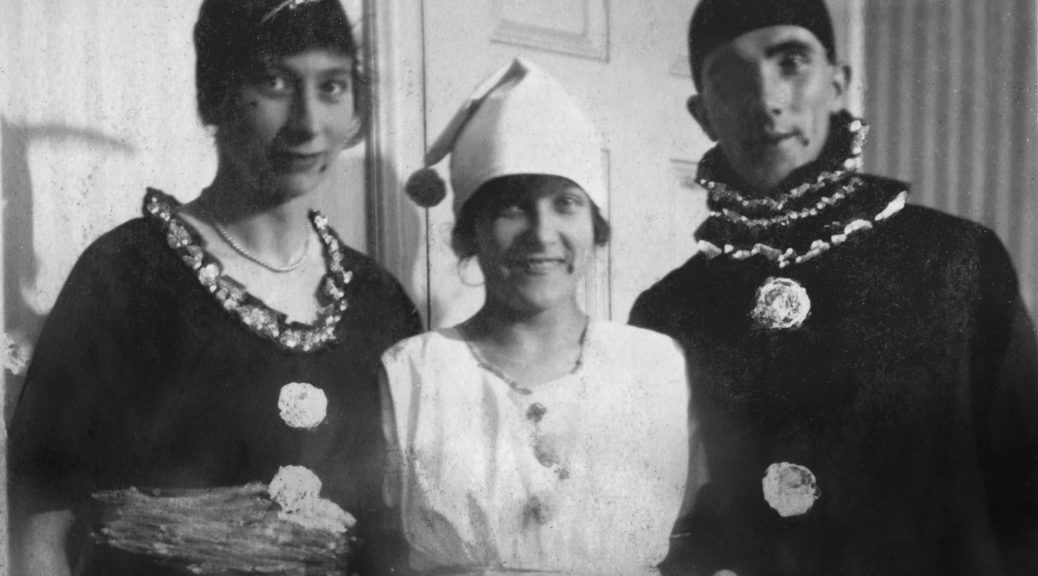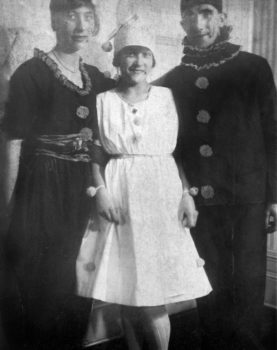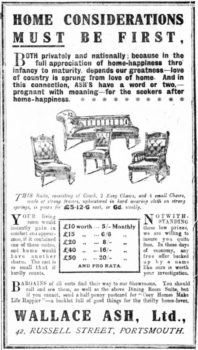My connection with the Beacon family is limited – my great aunt Maisie was briefly married to Cedric Alfred Beacon (1914-1922). Cedric and his father – Alfred Beacon, or Amos Beacon, or Dr. A. Beacon, or the “Rev. A. A. Beacon, Ph. D., M.A., etc.” are a puzzling and colorful pair, and I wanted to try and put together their story – or at least an outline of it. I believe that some part of their series of unusual transformations is upheaval that was going on in England at the time – a transformation in how children were educated in Alfred’s case and World War I and its aftermath in Cedric’s.
Cedric’s father Amos leaves you scratching your head. If census records are accurate (and this is all self-reported data, so it’s not always correct), a man who was a schoolmaster and for a while ran his own schools, in later life became a farmer, a green grocer and a timekeeper for a tram car company! How did that transition happen? Continue reading Beacon: Amos or Alfred, Charles or Cedric, teacher or tram inspector…

